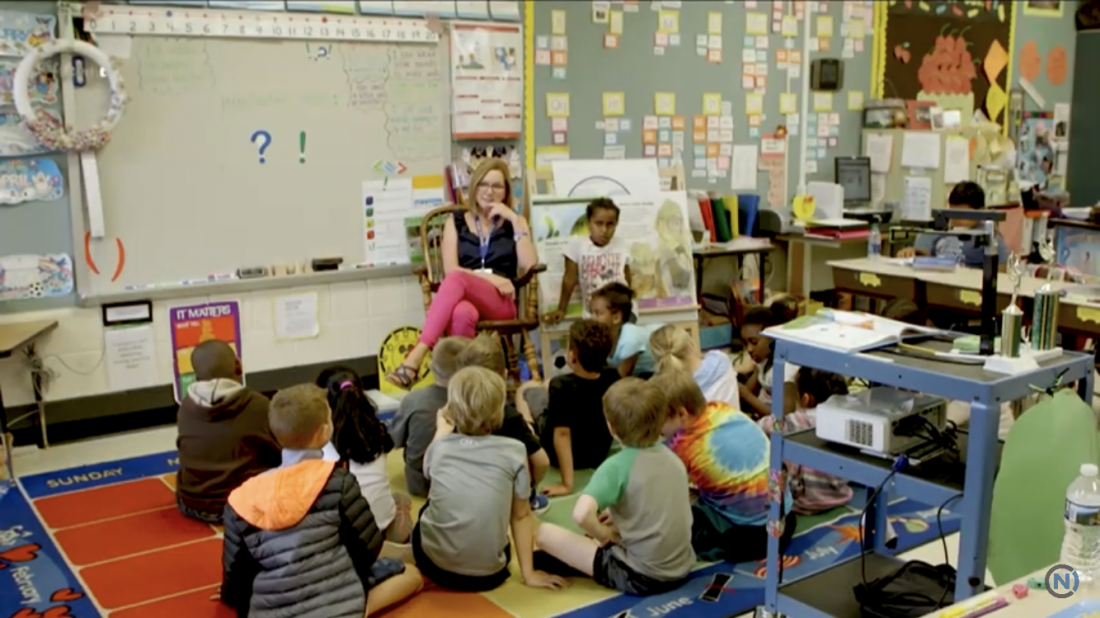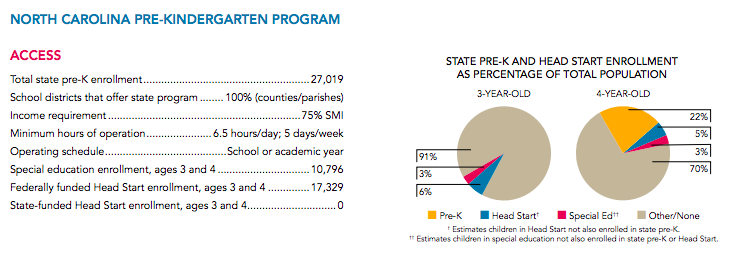Pre-K Expansion in Forsyth County
Did you know… North Carolina ranks first in Pre-K quality but 41st in access to Pre-K? About 62,000 low-income children are eligible for free NC Pre-K while only about 47% of them are served.

Co-Author Hallee Haygood
The Challenge
Early childhood education is not just about reciting the alphabet, counting numbers, and recognizing shapes. It provides young children with opportunities to learn through play, practice decision-making skills, and interact daily with peers and adults in a safe learning environment. Building soft skills at an early age has been shown to improve future reading and math scores in both the third and the eighth grades. It has also been shown to boost future earning potential, especially among children in low-income communities. Beyond providing critical services to meet a child’s developmental needs, successful early childhood programs can result in fewer school dollars going to special education and remediation (Public Schools First NC).
Studies demonstrate the benefits of early childhood education, and many localities seek to improve outcomes by providing it to more children. Although North Carolina’s Pre-K programs are high quality, there is insufficient access across the state for qualified students. Only 43.7% of children ages three and four are enrolled in in the state’s Pre-K programs. Read more from The News & Observer. The high cost of Pre-K within the state presents a barrier, as one study found that the average cost is around $9,254 a year in North Carolina.
The Solution & Players
Leaders in Forsyth County convened a variety of organizations to assist in creating and funding Pre-K educational opportunities. By involving various organizations, Forsyth County created a network of investment to support children within the community and increased the accessibility of early education. Additionally, a report found that Forsyth County now has a higher average subsidy for Pre-K education than the state’s average.
Smart Start is a state-wide organization that exists within each county. The branch within Forsyth County has different contracts and funding sources that allowed for greater investment in Pre-K. One example is the Kate B. Reynolds Charitable Trust creating a “Great Expectations Initiative,” which expanded funding for Smart Start in Forsyth County and provided funding for more schools. The Trust committed $30-40 million to improve access to early childhood education in the community. As one study found, when children attend early childhood education programs they show stronger academic skills, as well as social-emotional development in the long-run. Additionally, an initiative called Project Impact, sponsored by Kaplan, works to improve literacy within Forsyth County. The initiative funded the creation of a new curriculum called C4L, or Connect for Learning, which focuses on STEM learning.

SOURCE: NATIONAL INSTITUTE FOR EARLY EDUCATION RESEARCH
The Promise
Funding from a variety of sources has been the key to success in Forsyth County. Not only are philanthropies and local agencies investing in Pre-K, but so are private firms. The North Carolina Department of Health & Human Services review of Early Childhood Action Plans indicates Forsyth County had an 88.8% success rate increasing the skills of children entering Pre-K, compared to the state average of 78.2%.
